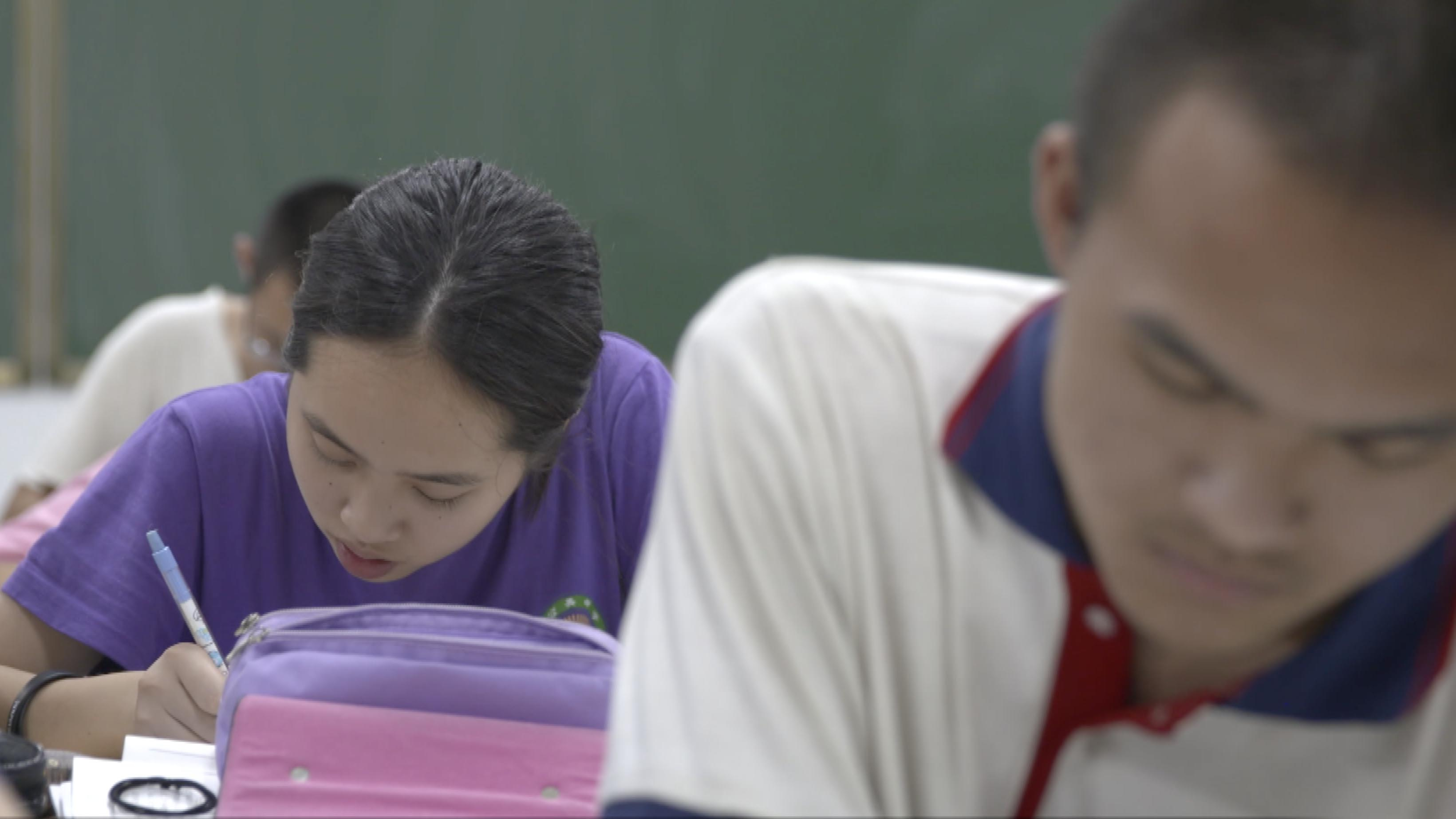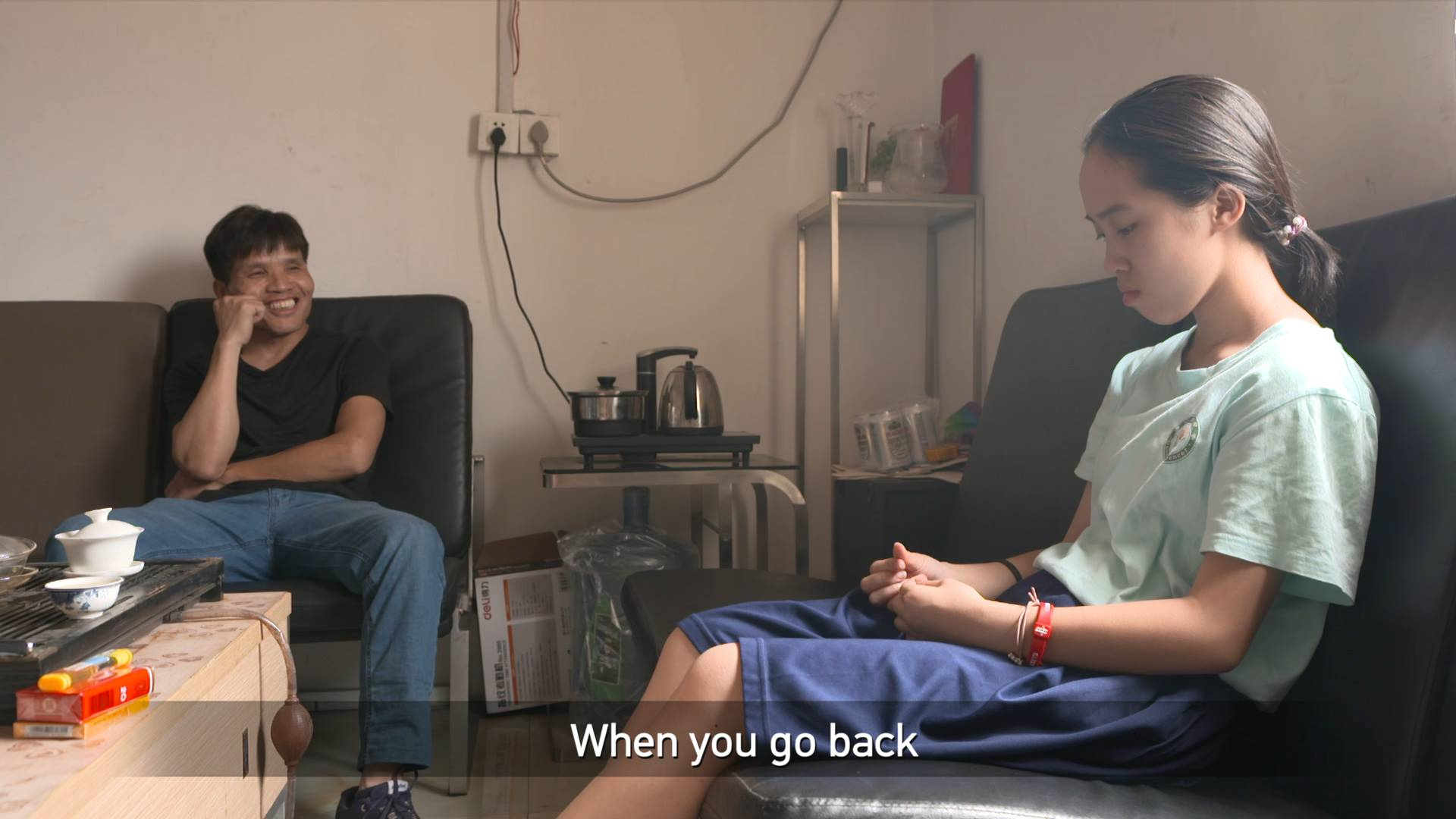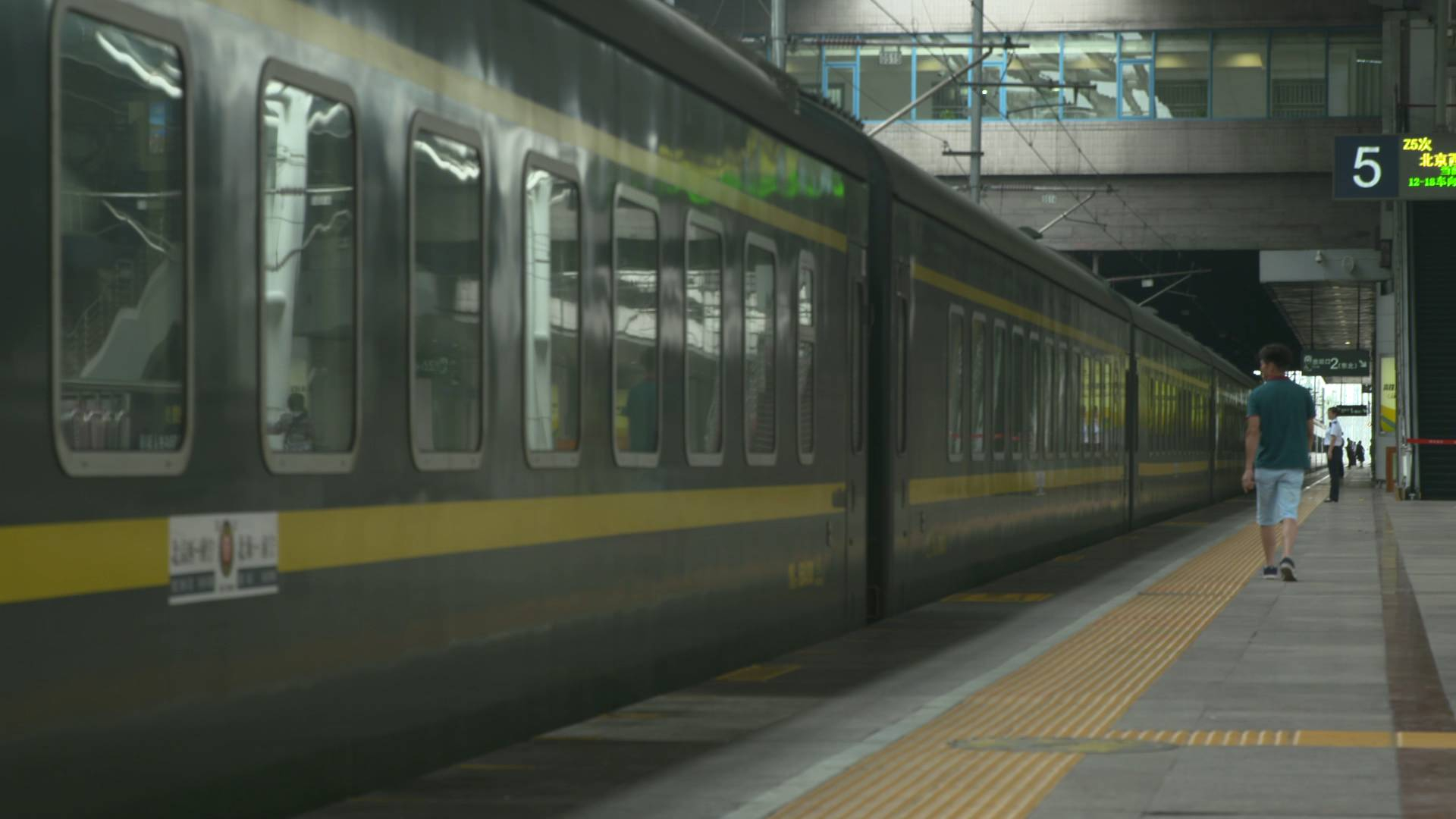01:14

Dandelion School, located in the a Beijing suburb and funded by charitable donations, provides three years of middle school education exclusively for children of migrant workers. Yet, however well they do in their final middle school exam, or the zhongkao, students here are not permitted to apply to a high school in the city, because they do not possess a Beijing hukou.
What is the hukou system?
China's hukou, or household registration system, has since the 1950s discouraged mass inflows of rural laborers to the cities by restricting access to urban welfare services. It means that the children of migrant workers have full access to education only in their hometowns, not where their parents are working. Reforms have been introduced over the years, yet the impact has so far been limited in big cities like Beijing.
At Dandelion School, Zhang Junjie's ninth grade students are finishing middle school this year. Originally, there were almost 150 of them, but over the past two years most have been sent back to their hometowns by their parents to continue their education where their hukou registration is held. The remaining 64 students, by staying in Beijing, are taking a gamble.

Mo Luxue and her father. / CGTN Photo
Mo Luxue and her father. / CGTN Photo
Where to go from middle school?
Students without a Beijing hukou have been permitted to take the Beijing zhongkao – effectively a high school entrance exam since 2013. Yet, they are still not permitted to attend high school in the city. Their best hope lies in neighboring Hebei province, the only other place in the country which recognizes the Beijing zhongkao.
Han Yuting is Dandelion School's student counselor. She explained: "Many students without a Beijing hukou look for high schools in Hebei. There'll be a lot of them. But there are only limited places for students from Beijing. The Hebei schools give priority to Hebei students. Only limited places are left."
Mo Luxue's family comes from Guangxi, 2,000 kilometers to the south. She has been living in Beijing since she was just a few months old. Anxious about her prospects, her father wants her to take an independent school entrance exam back in Guangxi, in addition to the zhongkao. But having grown up in Beijing, Luxue is reluctant to leave.
Mo Rengui, Luxue's father, settled in Beijing several years before she was born. He now runs a small metalworking shop in Beijing. "But business hasn't been good," he said, adding that"if she went back home, I wouldn't be under so much pressure, considering how unstable my business here is. If her marks are good enough to get into a good school here, we'd like her to stay here to study. She's a little girl. It's not safe, living away from her parents. I'm worried about her."

Luxue's father sees her off as she heads back to Guangxi. /CGTN Photo
Luxue's father sees her off as she heads back to Guangxi. /CGTN Photo
The Hebei options
Hebei's key schools will base their decision on who to accept, on students' performance in the Beijing zhongkao. They're keen to enroll the best, in order to improve their own reputation by sending more students to university.
Luxue achieved a zhongkao score of 492 out of 580. It's not high enough for her to be accepted by a good public school in Hebei. However, there's still hope. In recent years, a number of private schools have sprung up in Hebei. Their requirements in terms of exam results are relatively low, as are the tuition fees for the better students.
It's pouring when Mo Luxue and her father arrive at a private school in Hebei, to assess the situation and discover its requirements. The school accepts students with a zhongkao score of 380 and above. The tuition fees are based on the score – the higher it is, the less the student pays. In Luxue's case, the fees are an affordable at 3,000 yuan a year.
The school represents Luxue's last chance to stay close to her family. But her father is skeptical, since the school has only been open for two years. So, he's also trying to make contact with high schools in their home town, which he thinks are better.
Finally, her father decides that Luxue will return to the family home in Guangxi, to attend a key high school that he has found for her. She will be living with her grandparents, whom she barely knows.
Her parents are remaining in Beijing, to earn a living. They comfort themselves and their daughter with the hope that Luxue will manage to win a place at one of the capital's universities in three years' time, and the family will be reunited.
Rediscovering China is a 30-minute feature program offering in-depth reports on the major issues facing China today. It airs on Sunday at 10:30 a.m. BJT (02:30 GMT), with a rebroadcast at 11:30 p.m. (15:30 GMT), as well as on Monday at 8:30 a.m. (00:30 GMT) and Friday at 1:30 p.m. (05:30 GMT).